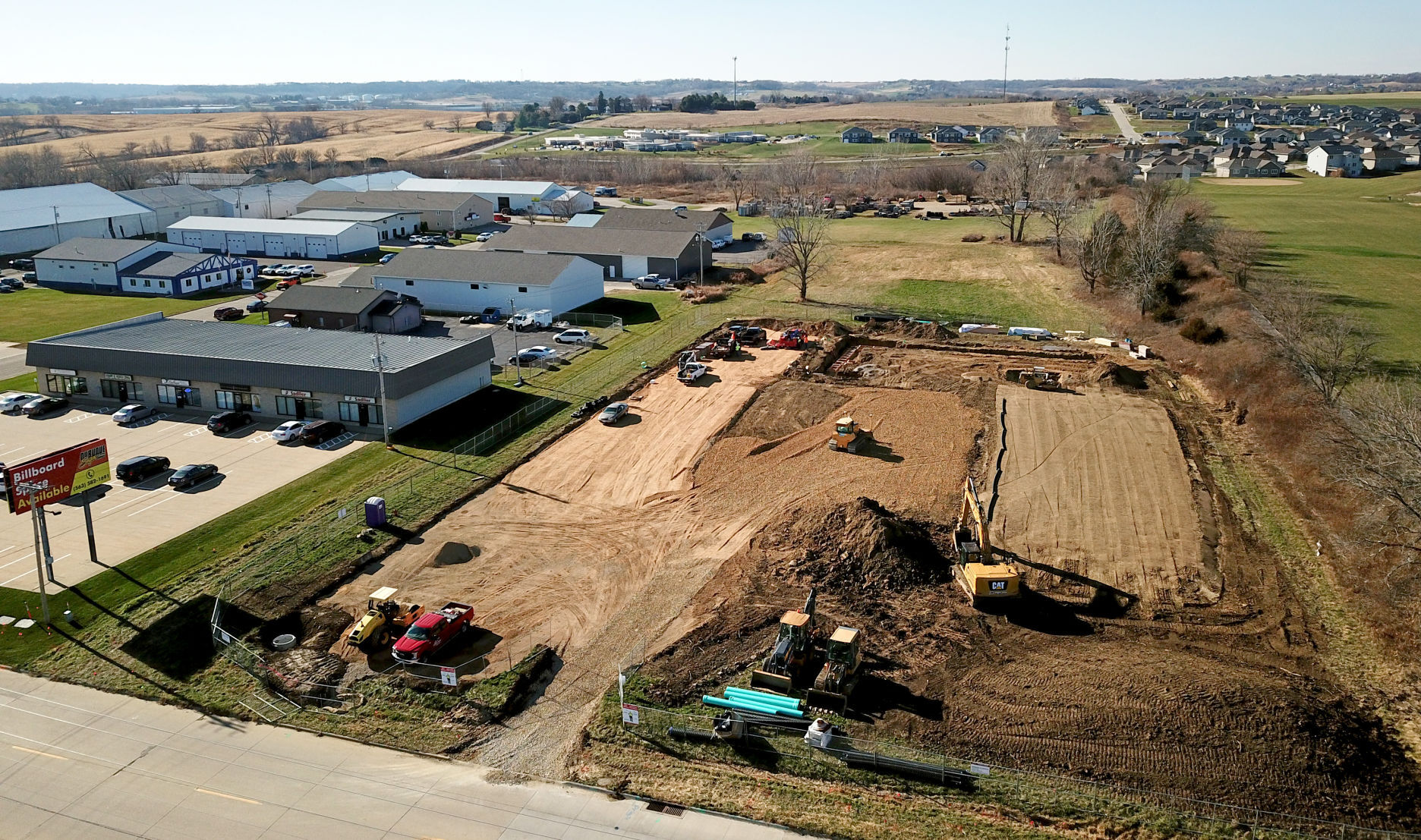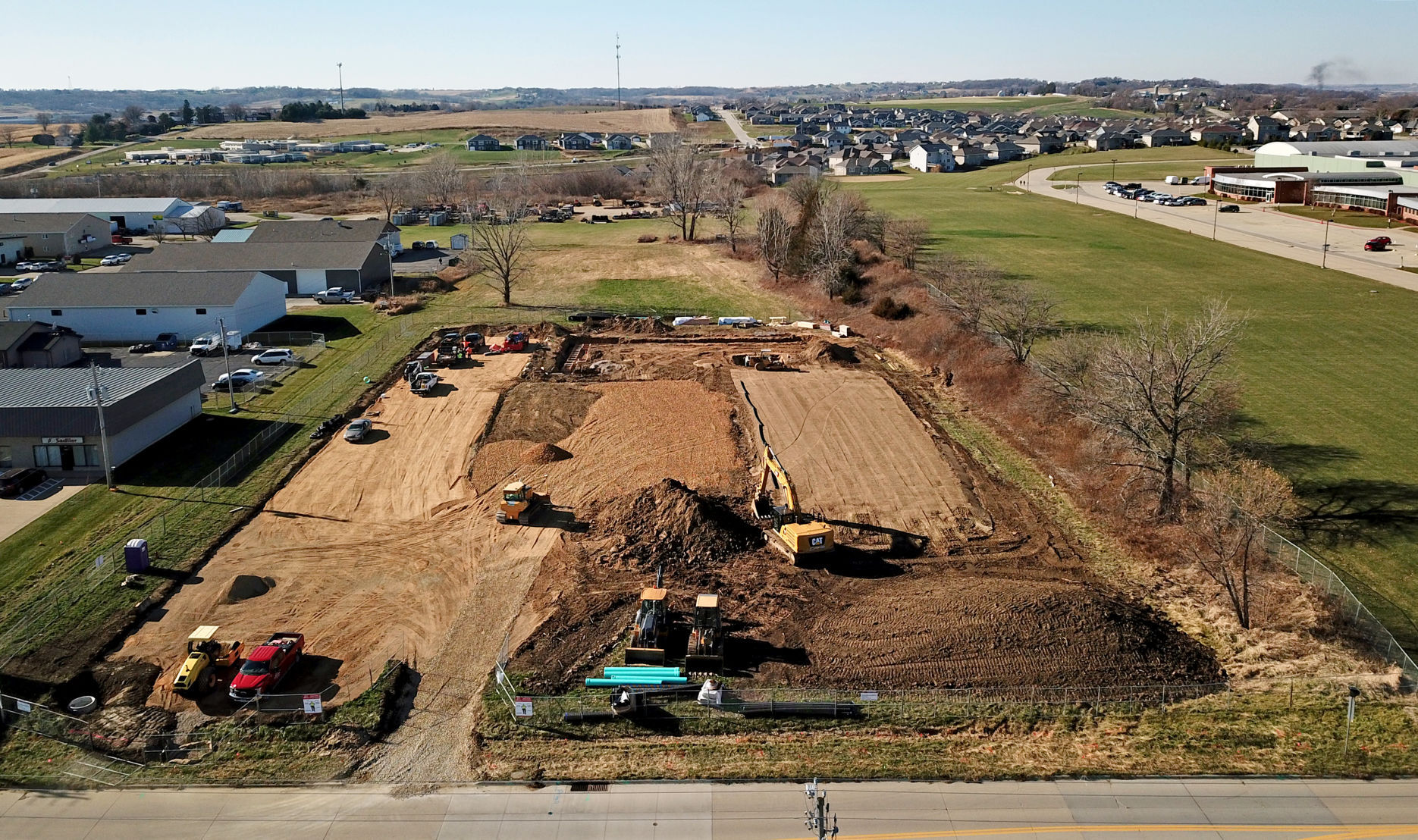Work is underway on a four-story structure that will feature 50 apartments along Radford Road in Dubuque.
The housing complex, known as Gardens of Dubuque, represents another step forward in an ongoing effort to bring more affordable housing to Dubuque.
Richard Sova, president of project co-developer Landover Corp., said 45 of the structure’s 50 units will meet guidelines for affordable housing.
Just west of this complex, Horizon Development Group will break ground on a 44-unit apartment complex in the spring. It will include 39 affordable apartments.
These projects are big news for the City of Dubuque, which determined that there was a shortage of 500 affordable rental units in the city when a study was conducted four years ago.
“We don’t know exactly what that number is now, but we know there is still a shortage,” said city Housing & Community Development Director Alexis Steger. “We definitely need more affordable housing.”
Sova said the total investment in Gardens of Dubuque comes in at around $9 million. Projects of this magnitude generally require 11 to 12 months of construction, a timetable that puts the apartment complex on pace to open in October.
Steger said Gardens of Dubuque is bringing affordable housing units to a census tract with a lack of affordable rental options. As a result, it is giving low-income residents access to a new part of the community, as well as amenities like schools and child care centers in that area.
“It is super important for the city and it is super important for housing choice, for people to be able to pick (where they live),” said Steger.
Another project, geared specifically toward affordable senior housing, will bring even more options to the west side of Dubuque.
Horizon Development Group plans to break ground on its project, located at 1865 Radford Road, in the spring of next year, putting the complex on pace for a spring 2022 opening. People age 55 and over are eligible to live in the facility.
Development Manager Scott Kwiecinski noted that Horizon previously oversaw the development of Applewood Senior Apartments in Dubuque.
“We continue to see good performance with those projects, and occupancy in those buildings remains strong,” Kwiecinski said. “This project (on Radford) is filling an additional need on the west side of Dubuque. It’s another opportunity to bring high-quality, affordable housing to people who need it.”
Sova said countless municipalities are trying to fill gaps in affordable housing and praised Dubuque for addressing this gap aggressively.
He explained that the city created a redevelopment zone along Radford Road, a distinction that allowed developers to apply for tax incentives.
“Dubuque is not dissimilar from other cities in the state. There are shortages of affordable housing everywhere,” he said. “Dubuque is different in that they are more supportive of affordable housing than others.”
For a variety of reasons, affordable housing projects can hit snags and face delays. The Gardens of Dubuque project, for instance, initially was slated to be finished and available to renters this year.
Other developers have announced plans for affordable housing units that never came to fruition.
Steger said these difficulties are largely due to the business model for affordable housing. Without the ability to charge market-rate rent, developers must rely on governmental support to make the projects feasible.
“Building these projects without the grants, without tax credits and without some additional incentives, they would basically be losing money,” she said. “There would be no return on investment at all.”
This year, the COVID-19 pandemic introduced another variable in the process.
“COVID has changed the way lending is done and the availability of financing,” Sova explained. “For developers, it has been much more difficult to get the type of financing they need.”
In order to receive low-income housing tax credits via Iowa Finance Authority, developers must abide by strict regulations dictating who can live in the apartments and how much renters can be charged.
Steger said affordable units only can be leased to those earning 80% of the community’s median income or less.
Rent varies based on factors like the renter’s income and the size of the unit. As a general rule, however, housing costs for renters — including both rent and utility payments — cannot exceed 30% of their monthly income.



